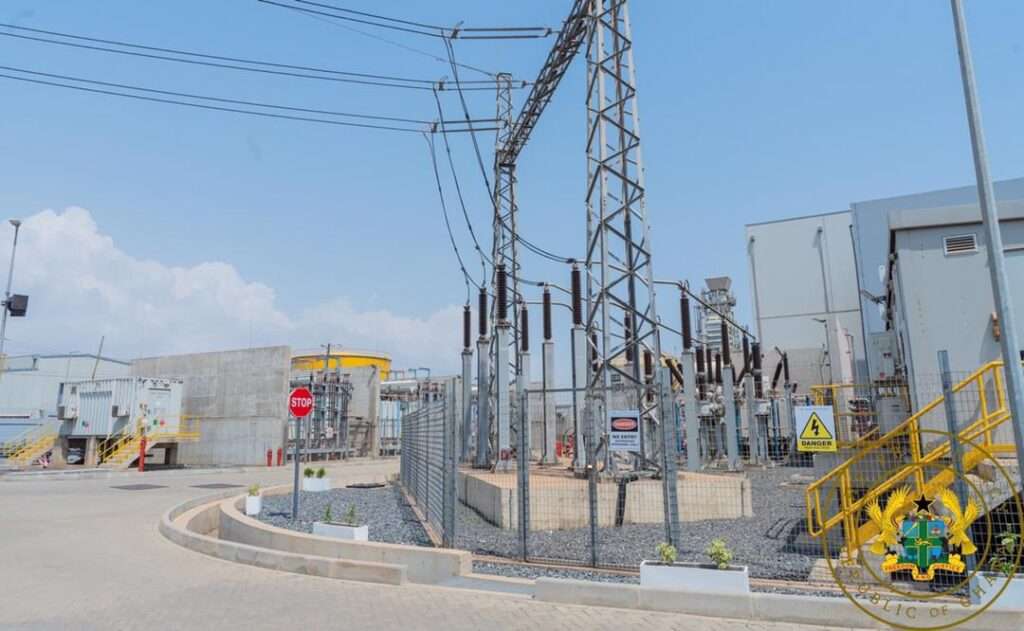Ghana’s energy sector, a critical driver of economic growth and productivity, faces persistent challenges in ensuring stable electricity transmission.
As the country seeks solutions to bridge the gaps in its energy infrastructure, a promising opportunity has emerged through private sector interest in investments.
One such significant player is the Japan Bank for International Cooperation (JBIC), which has expressed its readiness to support Ghana’s electricity transmission system with advanced technologies and financing options.
Ms. Fukaya Satoko, Division Director of JBIC’s Energy and Natural Resources Finance Group, highlighted the bank’s interest in financing Ghana’s energy transmission projects to enhance electricity stability and spur economic growth.
“A lot of Japanese companies have high technology to stabilize electricity, especially for transmission lines. We can finance these projects if the government is interested.”
Ms. Fukaya Satoko, Division Director of JBIC’s Energy and Natural Resources Finance Group
These technologies, proven effective in Japan, could significantly enhance Ghana’s energy transmission capacity, which has struggled with inefficiencies and occasional power outages.
This potential investment by JBIC, disclosed during the 2024 Africa Investment Forum (AIF) market days held in Rabat, Morocco, underscores the growing recognition of Ghana’s energy sector as a critical component for its development trajectory.
JBIC’s investment strategy for Ghana includes semi-commercial loans to finance bankable energy transmission projects. These loans would support critical infrastructure, such as the establishment of sub-stations, and the deployment of energy efficiency technologies.
Beyond energy transmission, JBIC has identified several other areas of interest in Ghana, including oil and gas, manufacturing, green projects such as renewable energy and clean cooking initiatives, and health infrastructure development.
“The Ghana government has tried to build up some kind of track record in coming out of crisis, and we can rely on that to invest in the country and support economic growth,” Ms. Satoko said.
Government’s Push for Private Sector Participation

Ghana’s government has also signaled its openness to private sector involvement in addressing the energy sector’s challenges.
At the 2024 Annual Meetings of the International Monetary Fund (IMF) and the World Bank Group (WBG), Dr. Mohammed Amin Adam, Ghana’s Minister of State for Finance, highlighted the urgency of closing the energy sector’s $1.9 billion financing gap.
He reiterated the government’s willingness to collaborate with private investors to bridge this gap and enhance energy reliability.
Dr. Adam noted that the government is exploring policies that create an enabling environment for private sector participation. This approach aligns with JBIC’s willingness to collaborate with Japanese companies and the Ghanaian government to implement transformative energy projects.
“If the government has the right policies, we are ready to collaborate and bring Japanese companies into the country and ensure that things are made possible,” Ms. Satoko affirmed.
Ms. Satoko expressed optimism that a partnership between JBIC, Japanese companies, and the Ghanaian government could significantly reduce the energy sector’s challenges.
Stable electricity supply is a cornerstone for industrial growth, and addressing transmission inefficiencies would position Ghana to attract more investments in manufacturing and other energy-intensive sectors.
Such collaborations could also have a multiplier effect on the economy. Improved energy infrastructure would enhance productivity, create jobs, and boost export competitiveness.
Additionally, it could help reduce the cost of doing business in Ghana, making the country an attractive destination for international investors.
Ghana’s energy sector, while ripe with investment opportunities, is not without its challenges. The country has made significant progress in expanding electricity access, with the national electrification rate reaching 85% as of 2023.
However, the reliability and stability of the transmission network remain a bottleneck. Power outages, transmission losses, and aging infrastructure hinder the energy sector’s ability to support industrialization and economic diversification.
Private investments like those proposed by JBIC could provide much-needed resources to modernize the energy infrastructure.
Establishing new sub-stations and upgrading transmission lines would not only stabilize electricity supply but also reduce transmission losses and improve efficiency.
READ ALSO: Bawumia’s E-Gate Commissioning, a Case of Government ‘Enchantment’























